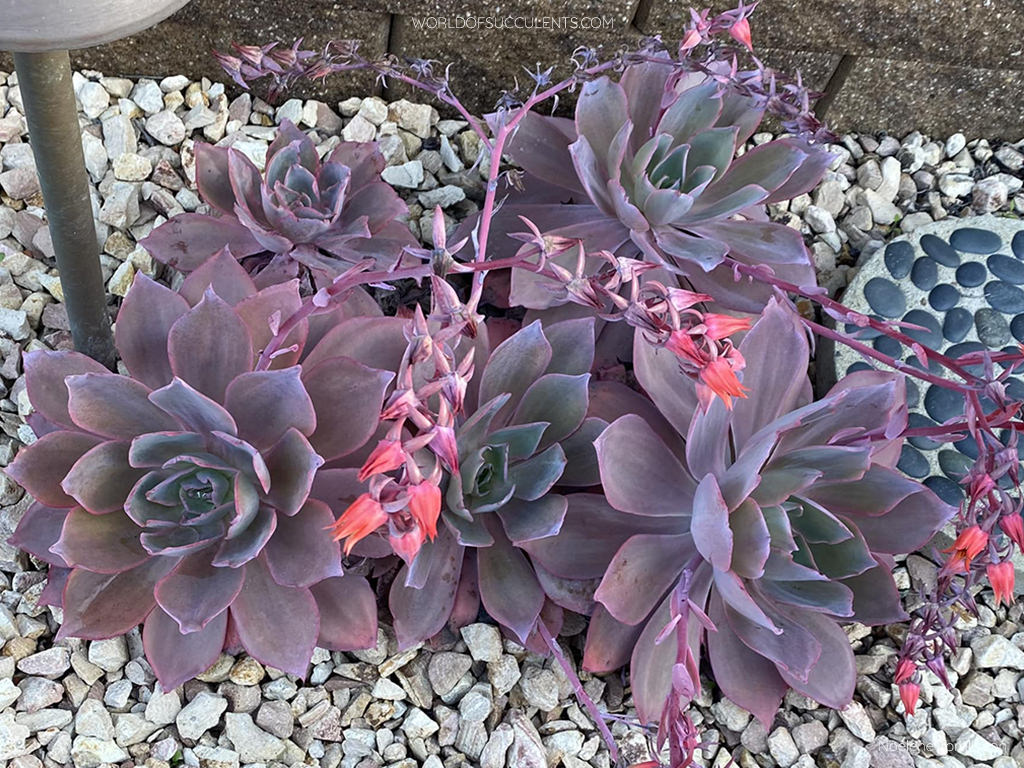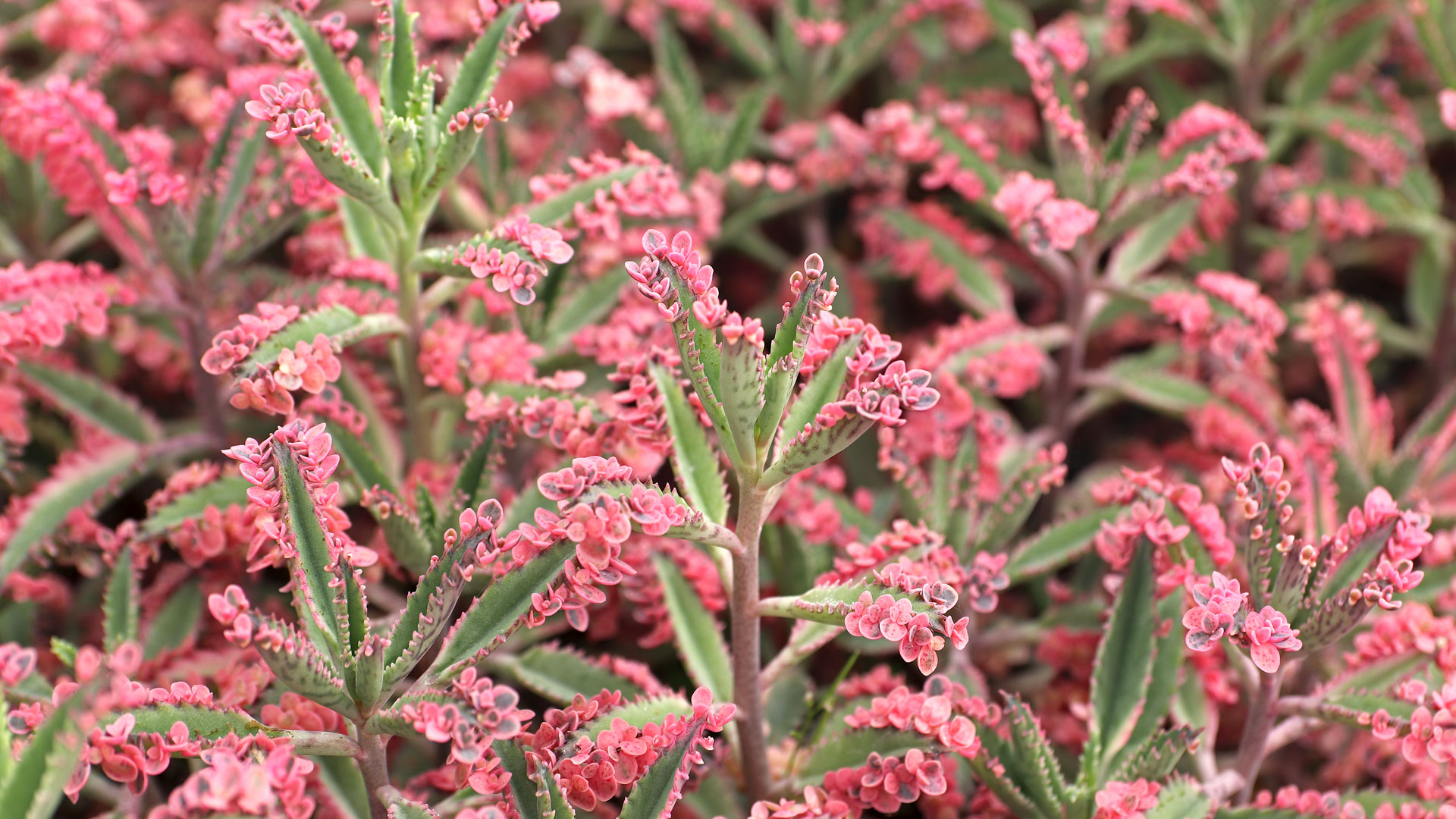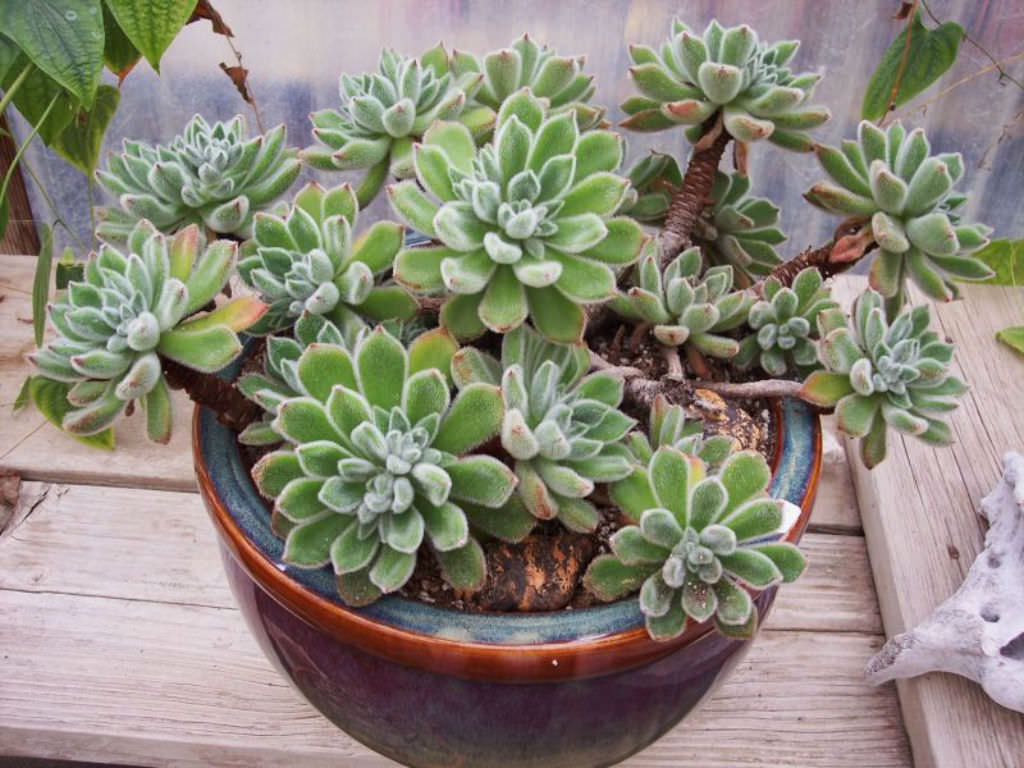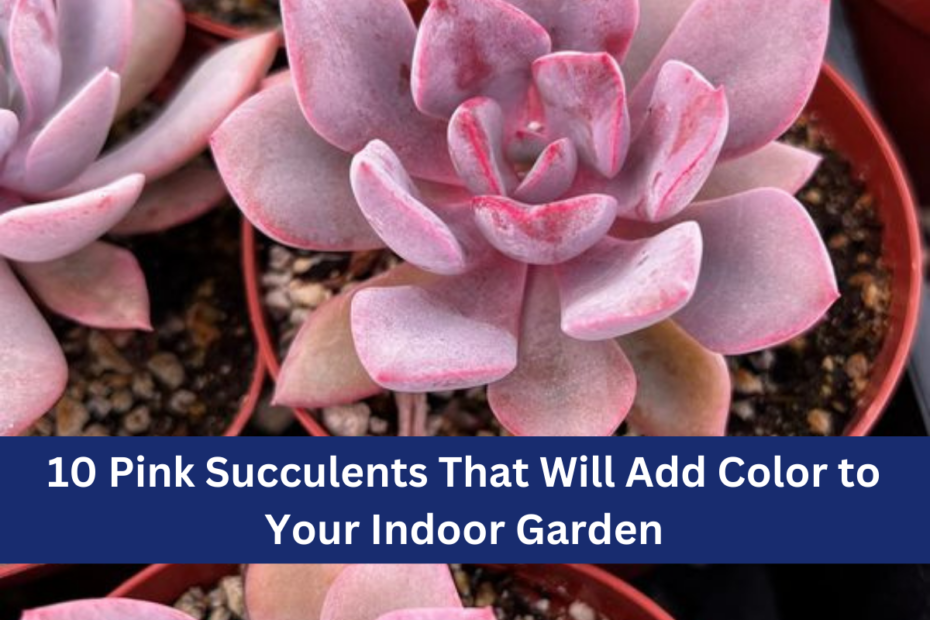10 Pink Succulents That Will Add Color to Your Indoor Garden: Adding pink succulents to your indoor garden can give it a splash of color and a funky feel. Not only do these plants have beautiful colors, but they also have interesting shapes and textures. These ten beautiful pink succulents will make any home garden look better:
1: Echeveria “Perle von Nürnberg”

People who like succulents often choose Echeveria “Perle von Nürnberg” because of its beautiful pink to lavender color. The leaves of this rosette-shaped succulent have a shiny, silvery sheen that changes from soft pink to darker colors as the plant grows older. The plant is small enough to fit in small pots or arrangements.
2. Crassula “Pink Jelly Beans”

C. ‘Pink Jelly Beans,’ which is also called C. ‘Fang,’ has big, jelly-bean-shaped leaves that can be green or bright pink. This succulent does best in bright, indirect light, and it can make any indoor space fun and lively.
3. Sempervivum “Pink Passion” rose

The Sempervivum ‘Pink Passion’ is famous for its bright pink rosettes that grow in tight groups. A hardy succulent with beautiful pinkish-red edges on its leaves that would look great in any succulent yard. It also has a reputation for being tough and thriving in a wide range of circumstances.
Also see : 11 Reasons to Grow Kalanchoe ‘Pink Butterflies’
4. Echeveria “Afterglow”

A beautiful plant called Echeveria “Afterglow” has rosettes that change color with the seasons. When the leaves are young, they are a soft pink color. In bright sunlight, they can turn darker pink and peach. Its beautiful rosette shape and range of colors make it stand out in any collection.
5. Pink butterfly kalanchoe

People love kalanchoe “Pink Butterflies” because its leaves are shaped like butterflies and are a soft pink color. Because it is easy to take care of and has unique leaves, this plant is a great choice for indoor gardening. It also has pretty pink flowers every once in a while.
6. Sedum “Pink Jelly Beans”

Sedum “Pink Jelly Beans” is a small, succulent plant with pinkish-red leaves that look like jelly beans because they are spongy. The bright color and small size of this plant make it great for terrariums or small pots. It can also handle dryness and is easy to take care of.
7. The echeveria “Chroma”

The pink to coral leaves of Echeveria ‘Chroma’ are very striking and grow in thick rosettes. The plant is the focal point of any indoor yard because of its bright colors and symmetrical shape. It’s also pretty easy to take care of Echeveria “Chroma,” which does best in bright, indirect light.
8. Crassula ‘Campfire’

Crassula “Campfire” is famous for its bright, flame-colored leaves that change from green to pink and red. The plant’s bright colors and unique leaf form make any succulent collection look more interesting. If you can give it a lot of sunlight, it does well in pots and indoor gardening.
9. Little Missy sedum

Sedum “Little Missy” is a small plant with leaves that, in the right conditions, turn a beautiful shade of pink. It grows in a thick, low mat that can look nice in pots or hanging baskets and add color and structure. Indoor growers like it because it’s easy to take care of and has a nice color.
10. The Echeveria “Doris Taylor”

It’s also called the “Woolly Rose” because its leaves are fuzzy and have pink edges. The plant is a unique addition to any indoor yard because of its unique texture and pink accents. Echeveria ‘Doris Taylor’ is a relatively low-maintenance plant that does best in bright light and soil that drains well.
Frequently Asked Questions (FAQ)
1. How much light do pink succulents need?
To stay pink, most succulents need bright, indirect light. For rich colors, some species need a few hours of direct sunshine everyday. Avoid excessive afternoon sun, which can scorch foliage.
2. Why is my pink succulent turning green?
Pink succulents can turn green without enough light. Move your plant to a brighter spot to revive its color. Succulents can also lose pigment from overwatering.
3. How often should I water pink succulents?
Water pink succulents only when the soil is dry. Root rot and color loss can result from overwatering. Watering every two weeks is sufficient, however climate and interior circumstances may differ.
4. Can I grow pink succulents indoors?
Pink succulents can survive indoors with enough light. Place them near a sunny window or use a grow lamp to provide enough light.
5. Do pink succulents need special soil?
Well-draining soil prevents soggy roots in pink succulents. Use cactus or succulent potting mix or mix perlite or sand with ordinary potting soil.
6. How do I encourage more pink color in my succulents?
Give your succulents lots of sunlight, minimize watering, and don’t fertilize to boost their pink color. Sunlight or moderate dryness frequently pulls forth brilliant colors.
Conclusion
Adding pink plants to your indoor garden is a lovely way to make it more colorful and interesting. From the bright colors of Echeveria “Afterglow” to the funky features of Crassula “Pink Jelly Beans,” each of these ten types has its own shade of pink and unique traits.
You can use these pink succulents to make a colorful planter or to brighten up a sunny windowsill. They will make any room inside look more beautiful and charming.
Because they come in so many shapes and colors, you can be very creative with how you arrange them, which makes them a great choice for anyone who loves succulents.
